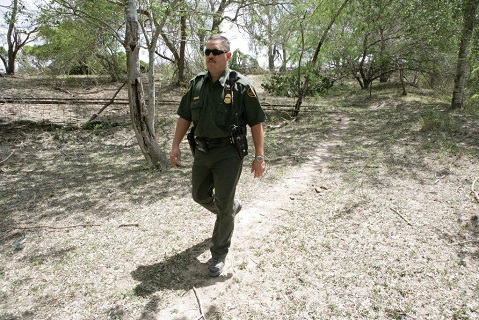By Commissioner R. Gil Kerlikowske
The clock is ticking, and time is running out. On February 27, the continuing resolution currently funding the Department of Homeland Security and its component agencies – including U.S. Customs and Border Protection (CBP) – expires.

Four things can happen.
Congress can let the continuing resolution expire, and CBP may have to furlough employees, which complicates our mission as the nation’s largest law enforcement agency. Or Congress can pass another short-term continuing resolution; this approach simply prolongs the kind of budget uncertainty that makes it difficult for CBP to plan and implement mission-critical border security programs and technologies. Or Congress can pass a full-year continuing resolution, potentially compromising CBP’s ability to make critical investments in aging and obsolete technology and facilities. Or Congress can pass a full-year appropriations bill.
That fourth option is the best way to go. But, the President has been very clear that he will veto any appropriations bill that contains amendments that attempt to defund our executive actions on immigration reform.
CBP has made great strides in making it easier and safer for lawful travelers and cargo to cross our borders. We’ve invested in paperless technologies and partnered with private industry to roll out improvements like automated passport control, and we’ve implemented trusted traveler programs to help ease wait times at our ports of entry. We’ve given our Border Patrol agents and our Air and Marine personnel better equipment and resources to ensure that our borders are secure.
We have committed to do more. But we can’t because of the uncertain budget climate. For example:
- Improving our increasingly obsolete nonintrusive inspection and detection technology is on hold. This technology detects illegal goods and materials and reduces the time it takes to conduct to these inspections, moving trade and travel faster. This is vital to the U.S. economy.
- Upgrading and replacing remote and mobile video surveillance systems in the Rio Grande Valley in Texas is on hold. These technologies are vital to improving CBP’s situational awareness, officer and agent safety, and detection capabilities.
- Improving the operational systems and analytic tools that support our National Targeting Center is on hold. The NTC supports DHS efforts to identify and deter transnational criminal organizations and these operational systems help identify terrorists and criminals attempting to cross our borders.
- Enhancing CBP’s ability to analyze geospatial intelligence is on hold. This capability is essential for identifying traffic patterns along the border as well as for prioritizing Border Patrol and Air and Marine deployments.
- Beginning the procurement process to fix outdated and inefficient Border Patrol facilities is on hold. This would allow CBP to address a portion of its deferred maintenance backlog, ensuring the safety and well-being of CBP staff and supporting operations in the field.
I have 40 years of experience in career law enforcement. A shutdown would be a needless hardship for our nearly 60,000 dedicated and professional CBP employees, their families, and for the nation. Nearly all of them – more than 53,000 – would come to work but would not take home a paycheck. CBP, meanwhile, would have to shut down or scale back many of its most important training functions and processing the paperwork to move trade, a risk to the national economy.
Time is running out. Congress should pass a clean, full-year appropriations bill.
The stakes are simply too high when it comes to ensuring secure and efficient border operations.
###
